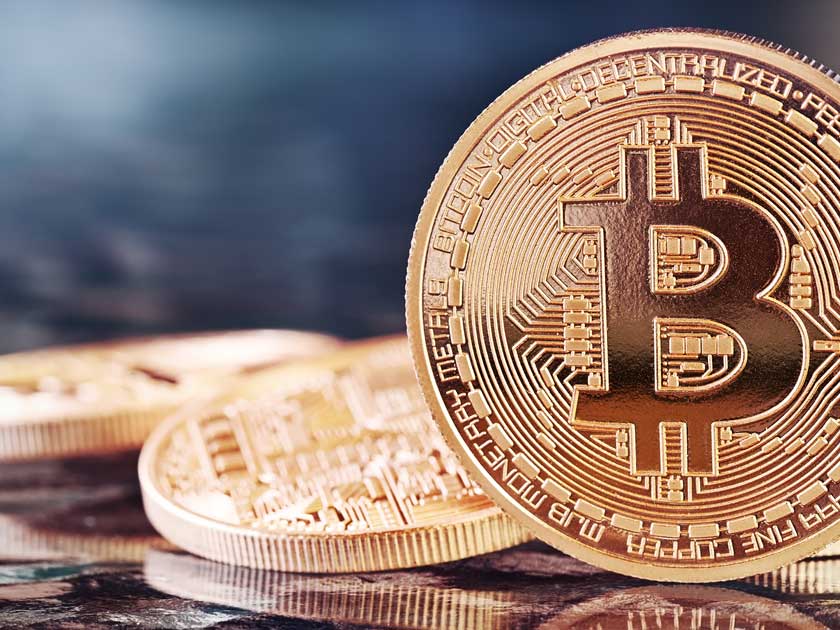- Sections :
- Crime & Public Safety
- Restaurants & Food
- Sports
- More
Bitcoin fever: Everyone's talking about it, but what is it?

THE WOODLANDS, Texas -- Bitcoin fever has reached a state of frenzy. There have been spectacular fortunes made in Bitcoin, yet very few people have any real idea exactly what all the fuss is about.
"On Thursday Dec. 7 its ticker was given its own designated space on cable news as the price surged past $16,000, and then past $17,000 only few hours later," said Rhame & Gorrell Chief Investment Officer Henry Pizzutello. "The price reached $19,000 before moving almost 20 percent lower. An investor who put $10,000 in Bitcoin at the beginning of the year would now have $180,000 and if they had done so in 2009 they would have $180 million."
Pizzutello said "cryptocurrency" is a form of digital money that is designed to be secure and anonymous. It is associated with the internet and uses a process known as cryptography which converts information into an uncrackable code.
"The origins of cryptography developed during the Second World War to facilitate secure communication," he said. "Bitcoin is a form of cryptocurrency."
Bitcoin isn't a hard coin, currency, or anything that you can put your hands on, Pizzutello said.
"It is the first cryptocurrency and was created by a programmer who is known by the pseudonym Satoshi Nakamoto, in 2008. While the initial intent was to develop a decentralized currency free from government controls, the initial attraction was to those wishing to circumvent legal payment venues. Drugs (and other services) could be purchased on the internet anonymously through Bitcoin on what is called the 'Dark Web.' The government cracked down on one of the most notorious sites, called Silk Road, in 2013 and confiscated $48 million in Bitcoin."
Pizzutello said Bitcoin is unique in that there are a finite number of them: 21 million.
"Bitcoin can be 'created' from nothing by solving complex mathematical formulas - this process is called 'mining.' The more people that try to mine Bitcoin, the more difficult the equation gets," he said. "Every four years, the number of Bitcoins released relative to the previous cycle gets cut in half. As a result, the number of Bitcoins in circulation will approach 21 million, but never hit it. This means Bitcoin never experiences inflation. Unlike US dollars, whose buying power the Fed can dilute by printing more greenbacks, there simply won't be more Bitcoin available in the future."
Bitcoin has risen from $1 in 2009 to $18,000 at the time of this writing, Pizzutello said. It has risen more than 1,700% since the beginning of the year.
"Many early buyers of Bitcoin have become fantastically wealthy in recent months," he said. "Tyler and Cameron Winklevoss (of Facebook fame) said they purchased $11 million in Bitcoin in 2013 and their holdings are now reportedly worth more than $1 billion. The person known as Satoshi Nakamoto is reportedly worth over $6 billion."
The easiest way to get involved in Bitcoin is to open an account with a crypto exchange," Pizzutello said. The leading crypto exchanges are Coinbase, Kraken, Bitfinex and Bitstamp.
"Essentially, you deposit money into the exchange and receive what is known as a 'digital wallet,' so that you will be able to buy and sell on the exchange," he said. "These exchanges require a fair amount of personal information that they use in account verification, and some of them take a surprising amount of time and effort to set up before your account is approved and/or funded to transact. Once you are approved, you are ready to trade."
Pizzutello said the concept of Bitcoin technology is fascinating.
"We have done a fair amount of research and have just scratched the surface on many of the issues at play," he said. "Most of the people that are involved in Bitcoin and other cryptocurrencies are doing so because they want to make money, and the price is going up. It's hard to argue with success, but an old Wall Street maxim comes to mind – 'Don't confuse brains with a bull market.' Just because you made money does not mean it was a good investment."
Click here for more information about the pros and cons of Bitcoin.
Please note: This material has been prepared for informational purposes only, and is not intended to provide, and should not be relied on for, tax, legal or accounting advice. You should consult your own CPA or tax professional before engaging in any transaction.










